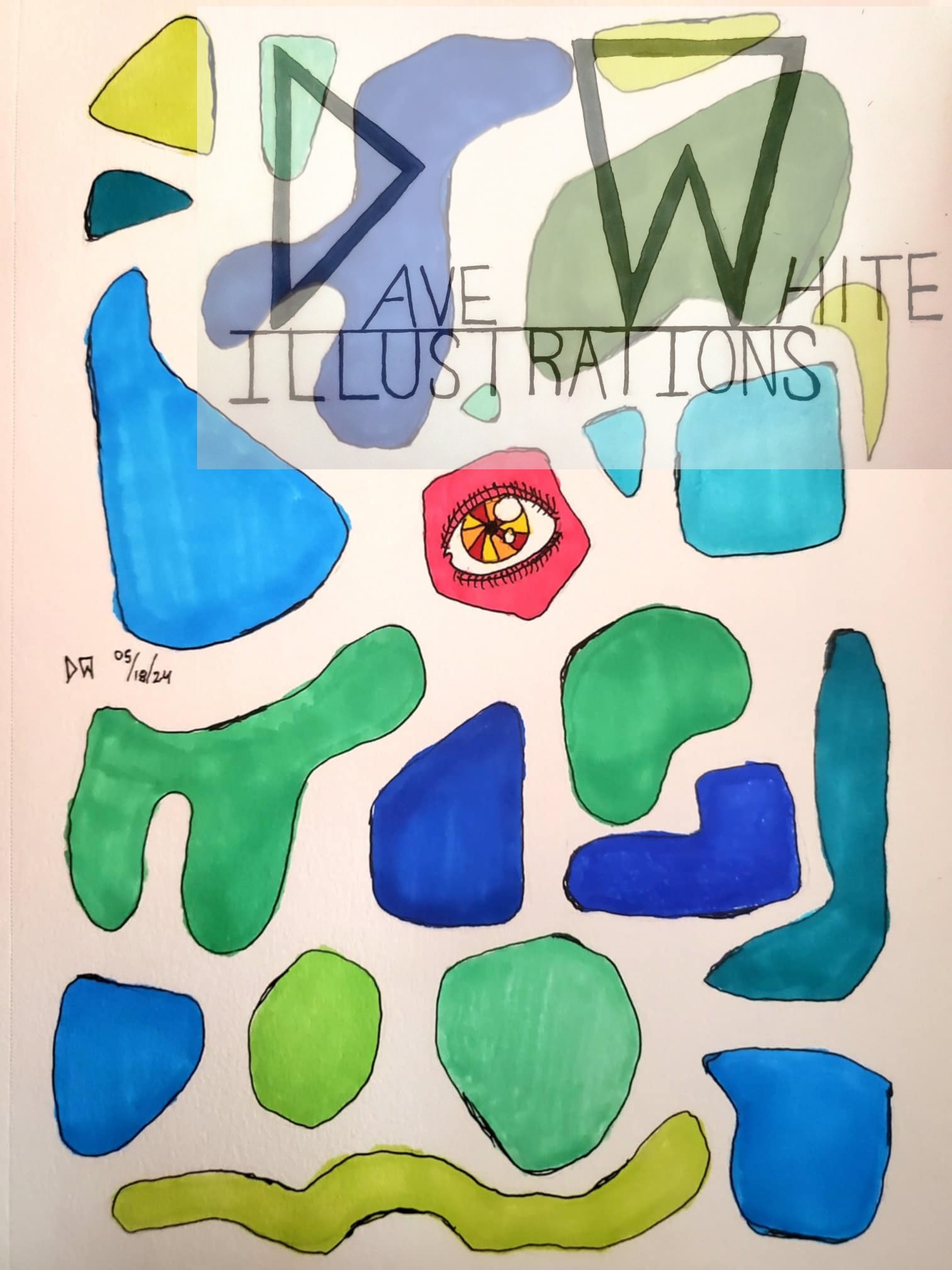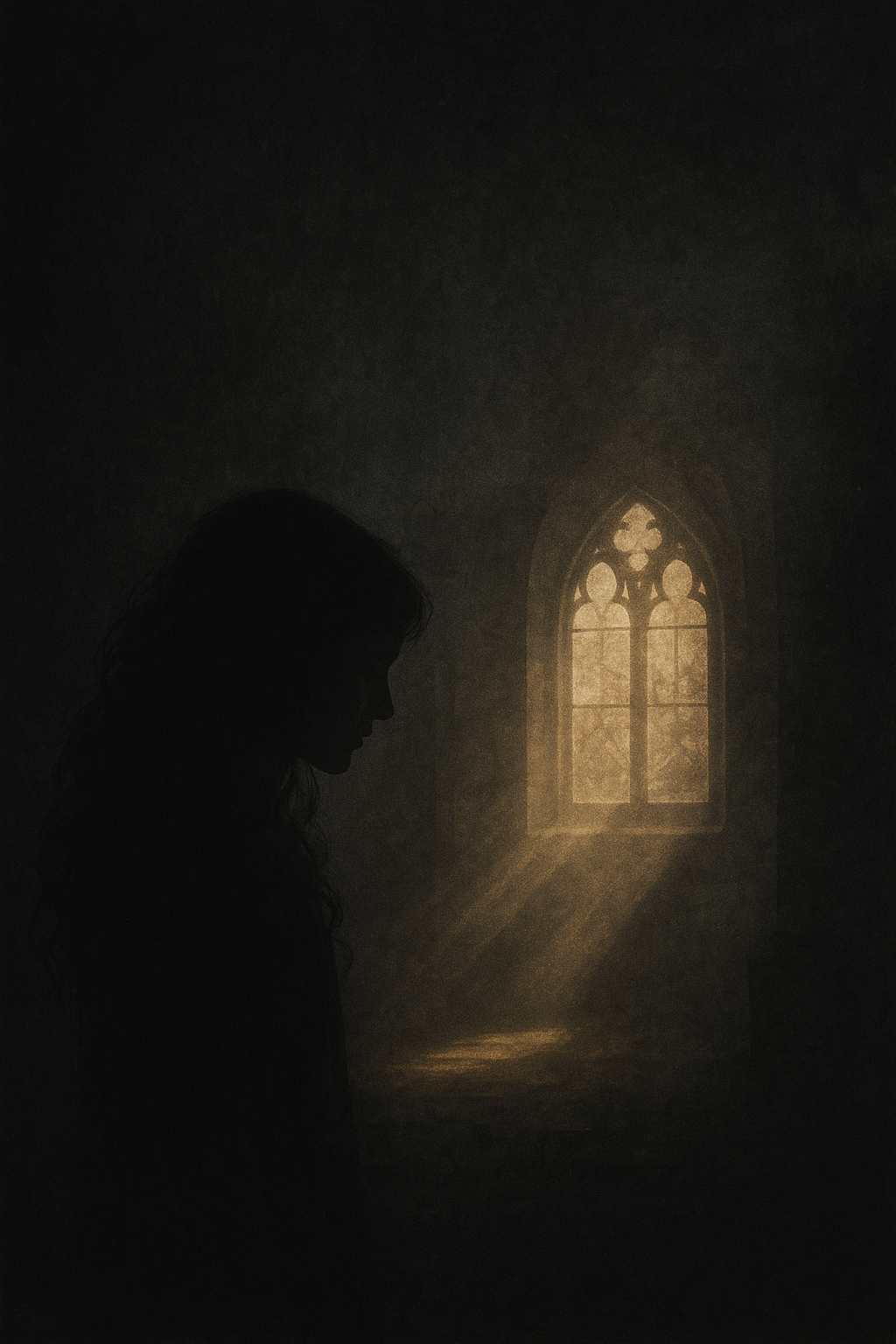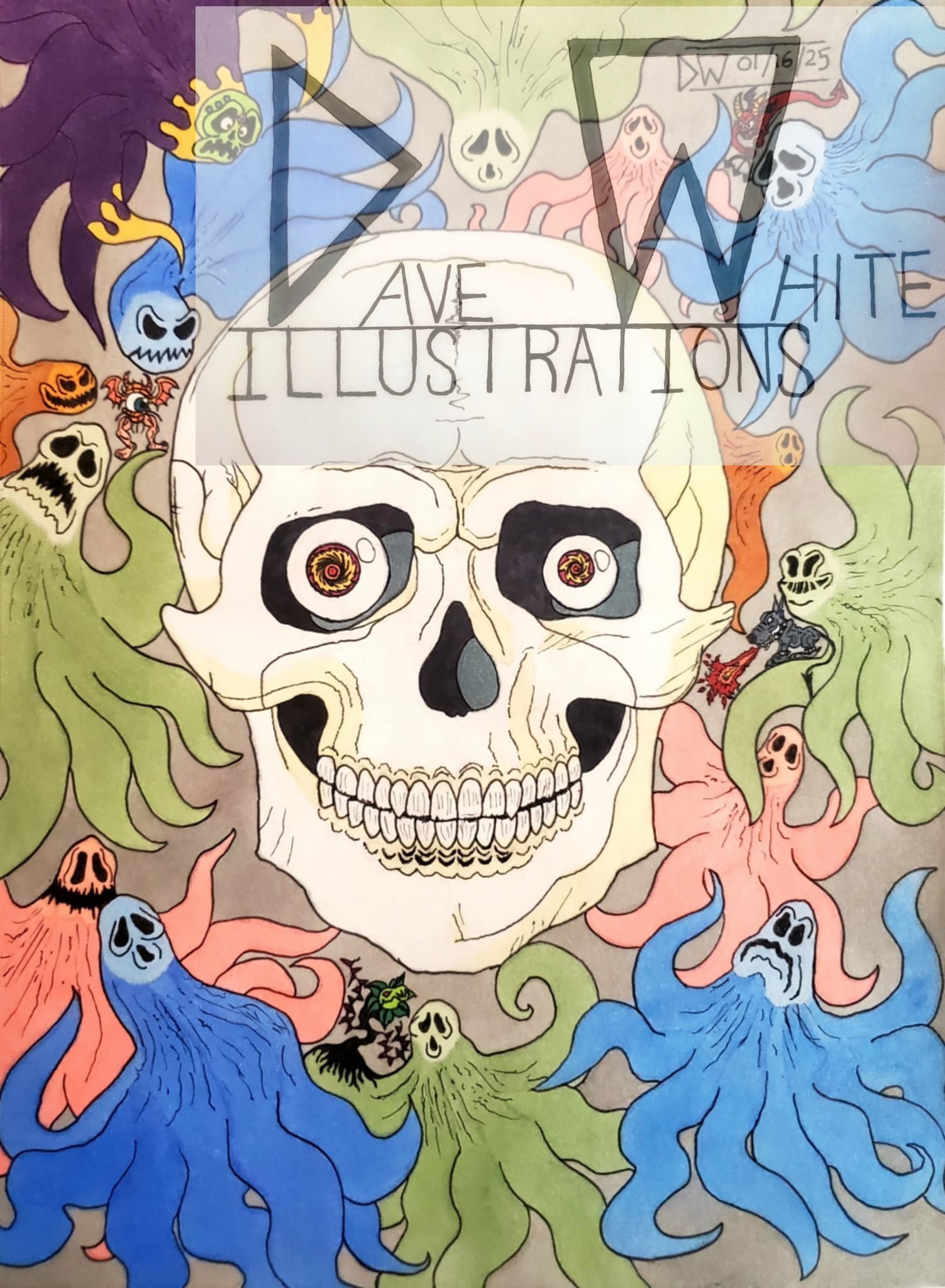White, David. Pieces. May 18, 2024, Dave White Illustrations.
Dave White’s Pieces (May 18, 2024) and Kiana Jimenez’s Blind Love come together as a poignant reflection on love’s fragility, heartbreak, and the yearning to mend what has been broken. Both works embody the struggle of holding onto something that cuts even as it captivates.
The illustration scatters fragments across the canvas—shapes in greens, blues, and violets, punctuated by a single crimson shard encircling an unblinking eye. Each fragment feels like a piece of a larger whole, jagged yet vibrant, carrying both the scars of breaking and the quiet resilience of reassembly. The composition suggests that while the pieces may never fit together as they once did, they form a new kind of wholeness, charged with memory and endurance.
The poem Blind Love echoes this visual language. It tells of a heart split apart by unreciprocated devotion, yet still clinging desperately to its beloved. Pain becomes inseparable from love:
“You cut my heart into many parts.
Still, I wish you would never hurt.”
The poem’s voice is raw with contradiction—betrayal and tenderness intertwined, love persisting even when it wounds. Just as the illustration’s fragments strive toward harmony, the poem’s speaker insists on piecing together what is shattered, even when the other does not understand.
Together, Pieces and Blind Love reveal the duality of heartbreak: the destruction it brings and the resilience it demands. The fragments of self and the shards of love may never return to what they were, but they can form something new—an imperfect, beautiful testament to both pain and endurance.
The Heart’s Mosaic
The Heart’s Mosaic — A digital download pairing Kiana Jimenez’s poem Blind Love with Dave White’s illustration Pieces, exploring heartbreak, fragmentation, and the beauty of resilience.
24 in stock





Leave a Reply